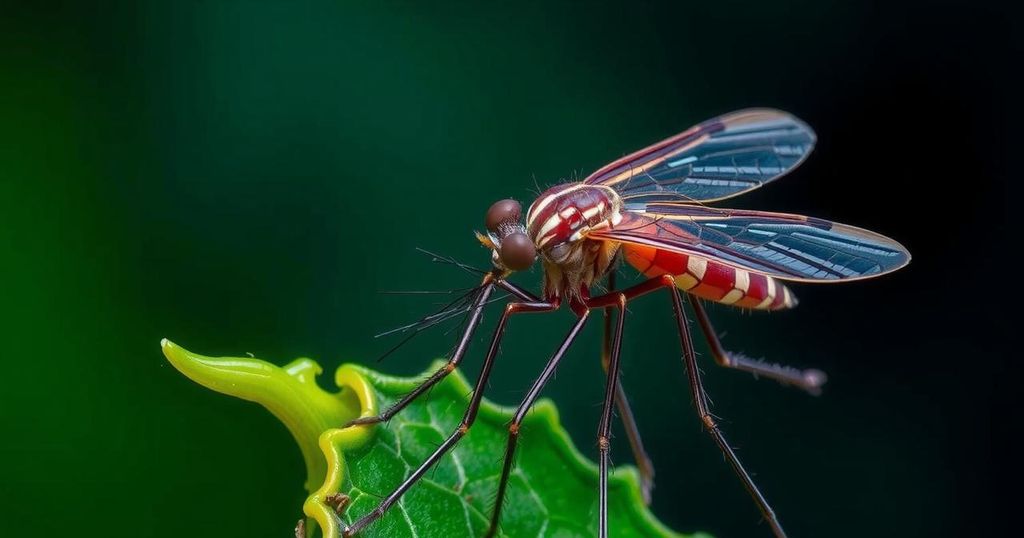Researchers have identified that nearly 20% of this year’s global dengue fever cases are attributable to climate change, with rising temperatures facilitating the spread of the disease. A study analyzed dengue data across 21 countries and projected a dramatic increase in cases due to warming. Additionally, Wolbachia-infected mosquitoes may offer a viable solution to mitigate dengue transmission.
Recent studies indicate that climate change is responsible for approximately 20% of the unprecedented rise in global dengue fever cases this year, according to US researchers. The scientists aim to elucidate the connection between increasing temperatures and the spread of diseases like dengue, which is transmitted to humans by mosquitoes. This viral infection, generally found in tropical regions, is finding its way to new areas due to shifting climatic conditions. The study, which is pending peer review, examined dengue fever data from 21 countries in Asia and the Americas, revealing that climate warming accounts for an estimated 19% of current cases. The optimal temperature range for dengue transmission is between 20 and 29 degrees Celsius (68–84 degrees Fahrenheit). This warming effect could escalate dengue cases by up to 200% in elevated regions of countries such as Peru, Mexico, Bolivia, and Brazil within the next 25 years. Currently, it is estimated that over 257 million people live in regions where climate change could significantly increase dengue incidence. As of September, more than 12.7 million dengue cases were confirmed globally, nearly double the total reported for 2023, although this figure may be significantly understated, with estimates suggesting actual cases could reach around 100 million. The research was presented at the American Society of Tropical Medicine and Hygiene’s annual meeting in New Orleans. In a related study, researchers investigated the effectiveness of mosquitoes infected with the Wolbachia bacteria, which inhibits the transmission of dengue. Introducing these mosquitoes in Niteroi, Brazil, five years ago led to a remarkable decline in dengue cases by 90% during Brazil’s worst outbreak this year, illustrating the potential of Wolbachia to provide sustainable protection against the rising threat of dengue. The researchers are collaborating with the Brazilian government to establish a facility for breeding Wolbachia-infected mosquitoes, aiming to safeguard millions from future outbreaks.
Dengue fever, caused by the dengue virus and primarily transmitted through infected mosquitoes, has traditionally affected tropical and subtropical regions. However, the impact of climate change is causing this vector-borne disease to spread into previously unaffected areas due to rising temperatures. Recent research is striving to connect climate change with health ramifications, focusing on how such changes exacerbate outbreaks of diseases like dengue fever. The current analysis highlights the urgency of addressing climate-related health threats as global warming continues to alter weather patterns and disease transmission rates.
In conclusion, the findings underscore a pivotal link between climate change and the increasing incidence of dengue fever, with significant implications for public health. The potential rise in cases in regions warming into optimal temperatures for mosquito breeding amplifies the urgency for climate action. Additionally, the promising results from the Wolbachia study offer a beacon of hope in combating the spread of dengue by utilizing innovative mosquito control methods. Overall, addressing climate change is essential not just for the environment, but also for safeguarding global health.
Original Source: www.barrons.com







